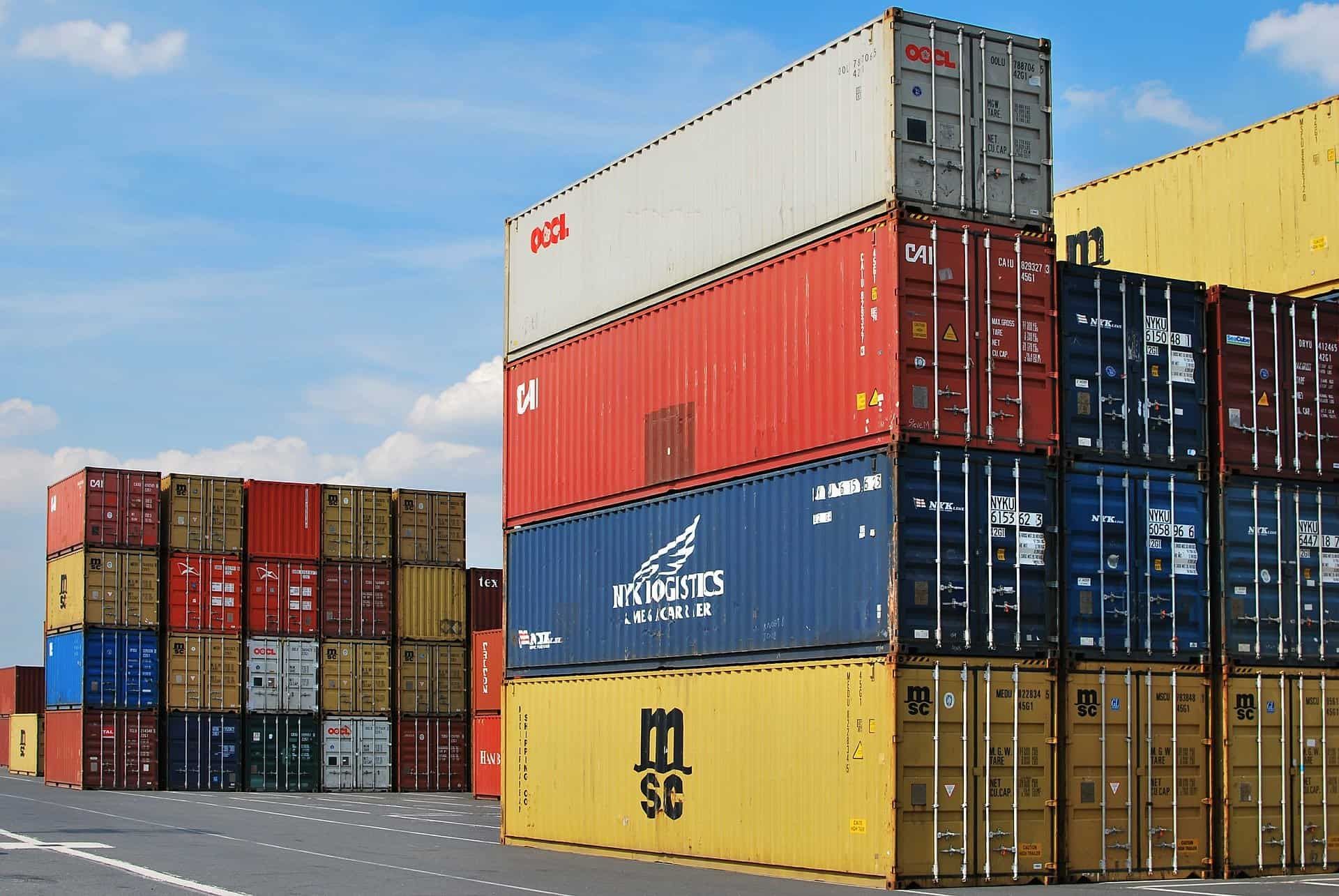
Freight transportation is an essential component of global commerce, connecting businesses and consumers around the world. Whether it’s by land, sea, or air, the movement of goods plays a crucial role in various industries, ensuring that products reach their intended destinations efficiently and on time. In this article, we will dive into 19 fascinating freight facts that highlight the magnitude and impact of the freight industry. From mind-boggling statistics on the volume of goods transported annually to the evolution of transportation methods, these facts will provide valuable insights into the world of freight. So, fasten your seatbelts, and let’s embark on a thrilling journey through the fascinating world of freight transportation!
Key Takeaways:
- The freight industry is huge and vital, with massive ships, trains, and planes transporting goods worldwide, shaping the global economy.
- Advanced technology and historical trade routes have revolutionized freight logistics, connecting the world and driving economic growth.
The world’s largest container ship can carry over 20,000 containers.
Imagine a ship so colossal that it can transport more than 20,000 containers in a single voyage. Such is the scale of the world’s largest container ship, a marvel of modern engineering and logistics.
The Port of Shanghai is the busiest container port in the world.
With its strategic location and massive infrastructure, the Port of Shanghai handles an immense volume of cargo, making it the busiest container port globally. It serves as a vital hub for international trade, connecting goods from all corners of the globe.
The Panama Canal has expanded to accommodate larger cargo ships.
In 2016, the Panama Canal underwent a significant expansion, enabling it to accommodate larger cargo ships known as “New Panamax” vessels. This expansion revolutionized global freight transportation, reducing transit times and increasing capacity.
The Great Wall of China was constructed using freight and trade routes.
During its construction over centuries, one of the key elements that enabled the building of the Great Wall of China was its strategic use of freight and trade routes. Materials and supplies were transported efficiently along these routes, showcasing the importance of freight in historical endeavors.
The largest container ship ever built is longer than four football fields.
Surpassing all previous records, the largest container ship ever built stretches over 1,300 feet in length, exceeding the size of four football fields. This massive vessel represents the ever-growing demand for efficient freight transportation across the seas.
Freight trains can transport massive amounts of goods across continents.
Equipped with numerous cars and powerful locomotives, freight trains have the capacity to transport enormous quantities of goods across vast distances. These trains play a crucial role in connecting industries and facilitating trade on a continental scale.
Amazon employs its own fleet of cargo planes for fast delivery.
To meet the growing demand for quick deliveries, Amazon has built its own fleet of cargo planes, ensuring efficient transportation of goods across the globe. This strategic move enables Amazon to fulfill its promise of fast and reliable shipping to its customers.
The world’s longest freight train is over four miles long.
Stretching over four miles in length, the world’s longest freight train is a sight to behold. With numerous cars and multiple locomotives, this colossal train exemplifies the incredible capacity and efficiency of modern freight transportation systems.
The concept of containerization revolutionized the freight industry.
Containerization, the process of transporting goods in standardized containers, has revolutionized the freight industry. This innovation has significantly improved efficiency, speed, and security in shipping, enabling seamless transfers between different modes of transportation.
Freight forwarding companies specialize in managing the logistics of shipping.
Freight forwarding companies are experts in managing the complex logistics of shipping. From coordinating transportation modes to handling customs regulations, these companies play a critical role in ensuring the smooth flow of goods across borders and continents.
The FedEx SuperHub in Memphis is one of the largest freight distribution centers.
The FedEx SuperHub in Memphis, Tennessee, serves as a central hub for sorting and distributing packages and freight. Spanning over 862 acres, it is one of the largest and most advanced freight distribution centers in the world.
Freight can be transported via air, land, sea, and rail.
Freight can be transported using various modes of transportation, including air, land, sea, and rail. Each mode offers different advantages and is suited for specific types of cargo, allowing for efficient and versatile shipping options.
The logistics industry relies heavily on advanced technology and automation.
The logistics industry embraces advanced technology and automation to optimize operations and improve efficiency. From autonomous vehicles to sophisticated tracking systems, these technological advancements play a crucial role in the smooth functioning of the global freight industry.
The largest cargo planes can transport entire buildings.
With their immense cargo capacities, the largest cargo planes can transport not only heavy machinery and vehicles but even entire buildings. These colossal planes have revolutionized the transportation of oversized and heavyweight cargo.
Freight shipping contributes significantly to the global economy.
The freight shipping industry plays a vital role in the global economy, facilitating the movement of goods on an international scale. The efficient transportation of raw materials, finished products, and essential supplies drives economic growth and prosperity worldwide.
Refrigerated trucks enable the transportation of temperature-sensitive goods.
Refrigerated trucks, also known as “reefers,” provide a crucial solution for transporting perishable and temperature-sensitive goods. These specialized trucks maintain a controlled environment, ensuring that products like fresh food and pharmaceuticals reach their destinations in optimal condition.
The concept of just-in-time delivery revolutionized freight logistics.
Just-in-time delivery is a logistics strategy that aims to minimize inventory and reduce costs by delivering goods exactly when they are needed. This concept has revolutionized the freight industry, enabling efficient supply chain management and reducing wastage.
Cargo ships generate a significant amount of air pollution.
Cargo ships, while indispensable for global trade, contribute a substantial amount of air pollution. The emissions from these ships have prompted regulations and efforts to find eco-friendly solutions, such as adopting cleaner fuels and utilizing more sustainable propulsion systems.
Freight forwarding has its roots in ancient trade routes.
The practice of freight forwarding has its origins in ancient trade routes, where merchants would facilitate the transportation of goods across long distances. This historical context demonstrates the enduring importance of efficient freight logistics in global commerce.
Conclusion
In conclusion, these 19 freight facts highlight the complexities and significance of the freight industry. From the massive volumes of goods moved globally to the various modes of transportation and the impacts on the environment, freight plays a vital role in our interconnected world.
Understanding these facts can help individuals and businesses make informed decisions when it comes to shipping their goods, optimizing logistics, and reducing environmental impact. Whether it’s embracing digital technologies, exploring alternative fuels, or implementing sustainable practices, the freight industry continues to evolve and adapt to meet the demands of a changing world.
As we move forward, it’s crucial to recognize the key role that freight plays in connecting economies, supporting trade, and driving economic growth. By staying informed on freight facts and trends, we can contribute to building a more efficient, sustainable, and resilient freight industry.
FAQs
1. What is the importance of freight transportation?
Freight transportation is essential for connecting businesses, industries, and economies. It enables the movement of goods, supporting trade, and driving economic growth.
2. What are the different modes of freight transportation?
The main modes of freight transportation include air, road, rail, and sea. Each mode has its advantages and is used based on factors such as distance, speed, cost, and type of goods being transported.
3. How does freight impact the environment?
Freight transportation contributes to greenhouse gas emissions and air pollution. However, efforts are being made to reduce the environmental impact through measures like using clean fuels, increasing energy efficiency, and exploring alternative transportation modes.
4. What role does technology play in the freight industry?
Technology plays a crucial role in optimizing logistics, improving supply chain visibility, and enhancing efficiency in the freight industry. Automation, IoT, and data analytics are among the technologies transforming the way freight is managed and tracked.
5. Are there any regulations governing the freight industry?
Yes, the freight industry is subject to various regulations governing safety, environmental standards, and trade compliance. These regulations ensure the safe and efficient movement of goods while ensuring compliance with legal requirements.
6. How can businesses optimize their freight operations?
Businesses can optimize their freight operations by leveraging technology, improving supply chain visibility, implementing efficient logistics strategies, and exploring partnerships with reliable freight providers.
7. What are the emerging trends in the freight industry?
Some emerging trends in the freight industry include the use of autonomous vehicles, the adoption of sustainable practices, digitalization of freight documentation, and the integration of blockchain technology for secure and transparent transactions.
8. How can individuals contribute to a more sustainable freight industry?
Individuals can contribute to a more sustainable freight industry by choosing environmentally friendly transportation options, reducing packaging waste, and supporting companies that prioritize sustainability in their supply chains.
Freight facts offer a glimpse into the vast world of logistics, but there's more to explore! Curious about tools that keep warehouses running smoothly? Check out surprising facts about Harbor Freight Tools air compressors. Interested in global shipping giants? Learn intriguing details about DHL's operations. Want to know how e-commerce orders reach customers in China? Discover the inner workings of SF Express, a major player in Chinese logistics. Keep learning and satisfy your curiosity with these engaging articles!
Was this page helpful?
Our commitment to delivering trustworthy and engaging content is at the heart of what we do. Each fact on our site is contributed by real users like you, bringing a wealth of diverse insights and information. To ensure the highest standards of accuracy and reliability, our dedicated editors meticulously review each submission. This process guarantees that the facts we share are not only fascinating but also credible. Trust in our commitment to quality and authenticity as you explore and learn with us.


